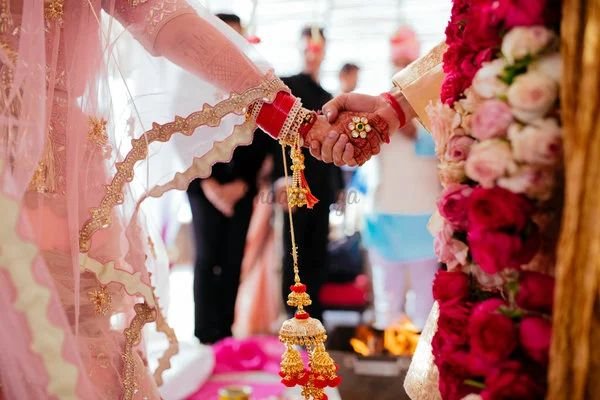My Review of Marriages in India: Bahu Rani or Naukrani?

My Review of Marriages in India: Bahu Rani or Naukrani?
Marriage in India has always been portrayed as a sacred union – a coming together of two families, a celebration of love, and a lifelong partnership built on respect, understanding, and care. But beneath the shimmering surface of wedding decor, rituals, and family photographs lies a reality that many women repeatedly whisper rather than openly speak about. A harsh reality where Bahu Rani (beloved daughter-in-law) often silently transforms into Naukrani (maid/servant) within a matter of days after the wedding.
This article is a reflection – part observation, part lived experiences of people around me, and part stories shared by countless women across India. It highlights the disturbing contradictions of our social structure and the alarming ways in which marriage, instead of being an equal partnership, becomes a lifelong service contract for many Indian women.
The Ideal vs. The Reality
The ideal Indian marriage promises:
- A loving partner
- A supportive family
- Mutual respect
- Shared responsibilities
- Emotional and financial security
However, the reality many women face is dramatically different. The moment the bride enters her new home, the tone of expectations is often set—not through words alone but through actions, taunts, workloads, chores, and subtle (or sometimes explicit) commands.
Suddenly, she is not the daughter-in-law but the household manager, the unpaid cook, the domestic helper, the emotional shock absorber, and the family’s honorary punching bag whenever things go wrong.
Many women describe it like this: “It feels like the family was not searching for a daughter-in-law; they were looking for someone who would cook rotis, do house cleaning, tolerate insults, and still maintain a smile.”
The Roti Syndrome: “Beta, Shaadi Kare Le; Roti Banane Wali Aa Jayegi”
This line is shockingly common across India. For many families, the very first quality they look for in a bride is not her ambition, values, kindness, or compatibility but her ability to cook.
An educated, independent woman with dreams becomes irrelevant the moment she fails to roll out perfectly round rotis. The definition of a “good bahu” is often reduced to:
- How early she wakes up
- How well she cooks
- How much she adjusts
- How little she complains
- How many tasks she can manage simultaneously
This mentality is not just outdated – it’s deeply dehumanizing.
When marriage becomes a recruitment process for unpaid domestic labor, the emotional bond between partners suffers. Instead of love and respect, the woman receives a constant checklist of responsibilities. Her entire worth is measured through chores.
When In-Laws Treat Her Like a Slave
Many women confess that after marriage, they feel like they have been bought—not married. The moment the wedding rituals end, their personal freedom begins evaporating.
Common forms of ill-treatment include:
- Being forced to handle all household chores even if she works full-time
- No rest, no appreciation, only criticism
- Constant policing of what she wears, eats, speaks, or does
- Taunts and gaslighting like “Ghar ka kaam toh sabko karna padta hai”
- Isolation from her own family: limited calls, visits, or emotional support
- Expecting her to obey orders like a servant
Women often recount how they enter the home with dreams only to be greeted with unspoken rules:
- “Yeh sab toh tumhe hi karna padega.”
- “Hamari bahu ho, thoda adjust karna seekho.”
- “Humare ghar mein bahu chulhe-chaukhe mein hi achchi lagti hai.”
What should be a home becomes a workplace with no salary and no holidays.
The Silent Abuse: More Than Just Words
Not all abuse is physical. In fact, the majority is emotional and psychological.
Women often face:
- Constant comparison to other daughters-in-law or the husband’s sister
- Body shaming, color shaming, looks shaming
- Threats of sending them back to their parents’ home
- Mocking their education or job
- Criticism for wanting rest
- Expecting perfection at all times
And the unfortunate part?
Most of this behavior is normalized. Society brushes it off as:
- “Shaadi mein adjust toh karna padta hai”
- “Sasural wale thoda-bahut bolte hi hai”
- “Chhoti baaton ko dil pe mat lo”
But for the women experiencing it, these “chhoti baatein” often break their spirit.
The Son vs. Daughter-in-Law: Unequal Expectations
One of the biggest contradictions in Indian families is the drastically different expectations from a son versus a daughter-in-law.
A son can:
- Wake up late
- Not know how to cook
- Have messy habits
- Behave rudely
- Avoid responsibilities
And yet he is lovingly protected, pampered, and excused.
Meanwhile the daughter-in-law must:
- Wake up before everyone
- Cook fresh meals daily
- Keep the house spotless
- Touch feet every morning
- Never talk back
- Never show exhaustion
- Smile at all times
This unequal burden is not only unfair but also emotionally exhausting. Many women report losing their confidence, identity, and mental peace because of this relentless pressure.
When Marriage Becomes a One-Sided Sacrifice
In many households, women are expected to give up everything after marriage:
- Their surname
- Their freedom
- Their social circle
- Their dreams
- Their comfort
- Their routine
- Their financial independence
But what does the husband give up?
In many cases: Nothing.
He continues living the same life he always did. Meanwhile, the woman is expected to reinvent herself completely around the new family’s expectations.
This imbalance creates resentment, depression, and emotional suffocation.
The Pressure to Be the Perfect ‘Bahu’
Modern society praises the “superwoman bahu” – the one who works, cooks, takes care of elders, raises children, manages finances, hosts guests, and still remains calm.
But no one asks:
- How much pressure is she under?
- Who takes care of her?
- Does she get rest?
- Does she have a support system?
- Does she have time for herself?
Women are not robots. They are human beings with limits. Yet many families treat their daughters-in-law as if they must endure everything without complaint.
Stories That Send a Chill Down the Spine
These are the kinds of things women commonly report:
1. “I wasn’t allowed to sit with the family during meals.”
Some women are treated like servers in restaurants—serving everyone food but eating last or alone.
2. “I had to ask permission for everything – even to call my mother.”
A grown woman treated like a child.
3. “My husband never supported me. He said, ‘Don’t create drama.'”
The pain increases when the husband joins the abuse or ignores it.
4. “They inspected my rotis and counted how many I made.”
This is not marriage. This is labor exploitation.
5. “They expected me to tolerate insults because that’s what good bahus do.”
No one should have to tolerate disrespect.
These are not overly dramatic examples – these are everyday realities for thousands of women.
Why Does This Mindset Still Exist?
Several reasons contribute to the persistent “Naukrani mindset”:
1. Patriarchy
Men are raised to believe household work is “not their job.” Women are raised to be “adjusting.”
2. Generational trauma
Many mothers-in-law treat their daughters-in-law badly because they themselves suffered.
3. Societal expectations
A woman is glorified only when she sacrifices.
4. Lack of education about equality
Families celebrate educated daughters-in-law but expect them to behave like traditional maids.
5. Cultural conditioning
For generations, a woman’s worth has been tied to her domestic labor.
The Impact on Women’s Mental Health
The emotional cost of such marriages is severe.
Women experience:
- Anxiety
- Depression
- Loss of self-esteem
- Isolation
- Overthinking
- Panic attacks
Many women say they have forgotten how to smile naturally. They live mechanically—fulfilling expectations rather than living a life.
When the Husband Fails to Stand Up
A husband plays a crucial role in shaping the marriage environment. When he supports his wife, things stabilize. But when he remains silent or sides with his family, the situation becomes unbearable.
Many women state:
- “He listens to them, not me.”
- “He never speaks up when they insult me.”
- “He says I should adjust because it’s his family.”
A marriage without emotional support becomes a burden rather than a partnership.
Breaking the Cycle: What Needs to Change
A healthier approach to marriage in India requires several shifts.
1. Marriage must be seen as a partnership.
Not a one-sided service contract.
2. Household work should be shared.
Cooking, cleaning, and caregiving are basic human skills—not gender roles.
3. Husbands must evolve.
Supporting their wives does not mean disrespecting their parents. It simply means fairness.
4. In-laws must accept the woman as a human being.
Not a tool for convenience.
5. Women must prioritize their self-respect.
No tradition or custom is worth suffering for.
6. Society must stop glorifying the suffering bahu.
Sacrifice should not be romanticized.
Conclusion: Bahu Rani or Naukrani?
The answer depends on the mindset of the family.
A woman becomes Bahu Rani when she is respected, valued, supported, and treated as an equal.
She becomes Naukrani when families cling to patriarchal traditions, expect endless labor, and erase her identity in the name of “adjustment.”
India claims to be progressing, but true progress begins at home – in kitchens, living rooms, and family attitudes.
A marriage is supposed to be a bond between two equals. Until families understand this, millions of women will continue living as silent laborers in the name of tradition.
It’s time to question, challenge, and change this mindset. Because every woman deserves dignity, love, and freedom – not chains disguised as customs.













